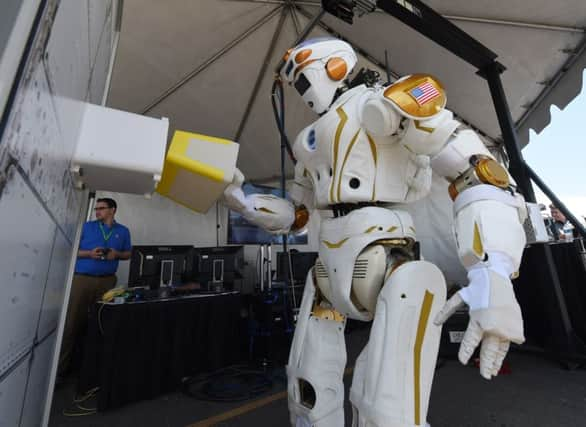From conversational platforms to IoT: Six tech trends to look out for in 2018


The Scotsman asked David Richardson, the centre’s director of partnerships, to share his six tech trends to watch out for 2018.
Conversational platforms
“There are many forms of ‘intelligent’ personal agents - Amazon Alexa, Apple Siri, Google Assistant and IBM Watson. These systems are capable of answering basic questions such as “Should I wear a jacket today?” or performing simple tasks like turning up the heating. As they continue to collect and learn from greater volumes of interaction data, they will begin to support more complicated tasks.”
Immersive experiences
Advertisement
Hide AdAdvertisement
Hide Ad“Immersive technologies like virtual and augmented reality blend digital experiences into the physical world around us. Platforms including Oculus Rift and HTC Vive continue to evolve, and with Apple’s new in-built support for augmented reality in the latest iPhone, this opens up tremendous opportunities for developers to entertain and equip users with new forms of experience. Scotland has already made an impact with VR audio firm Two Big Ears being acquired by Facebook in 2016.”
Blockchain
“Blockchain has received a lot of coverage in recent years, with much of the attention on new crypto-currencies such as BitCoin and Ethereum. Leading financial company Bloomberg has recently added three popular crypto-currencies to its main platform.
Many organisations around the world are exploring further applications of Blockchain. In essence, the technology offers faster and more secure ways to transact and share information, often with lower costs.
Closer to home, companies like Wallet.Services are working with the Scottish Government to test new ways of delivering safer public services. Hong Kong-based IOHK recently established a new lab at the University of Edinburgh to collaborate on future research.”
Internet of Things (IoT)
“Leading chip company, ARM, envisages a future where we have one trillion connected devices by 2035. Such devices could be anything from a smart thermostat to a connected cow collar and, with new low-power technologies, batteries could last for years instead of days.
We have some exciting indigenous companies in the space, including former University of Edinburgh spin-out, pureLiFi, now a venture capital-backed business who are pioneering so called ‘LiFi’ technology by transmitting data via light and are well positioned enable the progress of the Internet of Things.”
AI and Machine Learning
“AI is emerging as one of the hottest trends for 2018, with industry and public sector organisations exploring the impact of new techniques, such as deep learning. AI has performed well in a narrow set of tasks, for example image recognition and speech processing. Some are particularly fearful of job losses in the professional services sector, however, AI also has the potential to create new jobs and enhance the capability of existing employees.”
Robotics
“Robots have been building our cars, vacuuming our homes and cutting our lawns for the last decade or so. With an ageing population, they also have the potential to provide care services for our elderly and tackle the national productivity gap.
Advertisement
Hide AdAdvertisement
Hide Ad“The global market for advanced robotics is projected to be worth between £1-3 trillion by 2025. Over the course of 2018, expect to see more robotics technologies focused on ensuring safer working environments.”